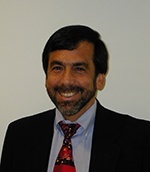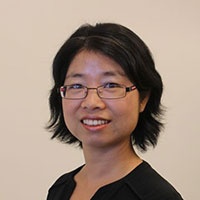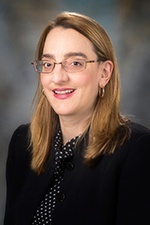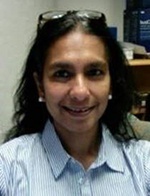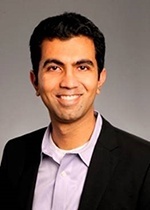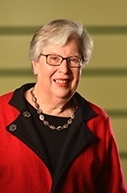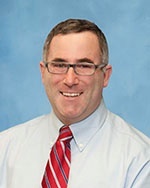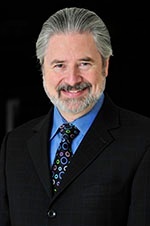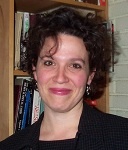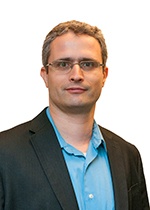 |
Blog
SYNOPSIS: Significant research efforts and resources are being directed towards the development of methodologies and data to support the Precision Medicine and the Cancer Moonshot Initiatives and to utilize these as the basis for translational medicine. Most of these focus on the development and implementation of technology that integrates genomics into clinical practice and/or the development of new diagnostics and therapeutics. The success of these efforts may be hindered by a lack of appreciation of the complexities present in real world clinical practice, e.g., quality and adherence to clinical guidelines, and real world patients, e.g., co-morbidities and poly-pharmacy. We have been developing and implementing system-based modeling approaches to facilitate the evaluation of these critical factors to enhance the goal of delivering the right care to the right patient. The approach that we have developed, in collaboration with the Epidemiology and Health Research Department at the National Research Council of Italy (CNR-Pisa) involves the development of a Disease Process Model and its instantiation as an ontology implemented in a web-based platform. This disease-agnostic model has been successfully applied in drug and diagnostic development, clinical trial design (and evaluation), risk evaluation and clinical decision support applications. An additional critical component of this modeling approach incorporates the patient’s underlying physiological development and the reality that risk, particularly to lifestyle and environmental factors, will vary throughout a patient’s lifetime and stage of development. This presentation will address the gap between unmet clinical need and unstated, unmet clinical and provide examples from our work in breast cancer, pediatric Acute Respiratory Distress Syndrome (pARDS) and heart failure.
BIO:
Michael N. Liebman, Ph.D. (theoretical chemistry and protein crystallography) is the Managing Director of IPQ Analytics, LLC and Strategic Medicine, Inc., after serving as the Executive Director of the Windber Research Institute from 2003-2007. Dr. Liebman is an Adjunct Professor of Pharmacology and Physiology at Drexel College of Medicine and Adjunct Professor of Drug Discovery, First Hospital of Wenzhou Medical University. Previously, he was Director, Computational Biology and Biomedical Informatics, University of Pennsylvania Cancer Center. He served as Global Head of Computational Genomics, Roche Pharmaceuticals and Director, Bioinformatics and Pharmacogenomics, Wyeth Pharmaceuticals, Director of Genomics for Vysis, Inc. He is a co-founder of Prosanos, Inc. (now United BioSource). He was Associate Professor of Pharmacology and Physiology/Biophysics at Mount Sinai School of Medicine.
Dr. Liebman also serves on 14 scientific advisory boards and the Board of Directors of the Nathaniel Adamczyk Foundation in Pediatric ARDS and Innovene Pharmaceuticals. He is Chair of the Informatics Program and also Chair of Translational Medicine and Therapeutics for the PhRMA Foundation and a member of their Scientific Advisory Board. He is on the Advisory Board of the International Society for Translational Medicine and on the Editorial Board for the Journal of Translational Medicine, for Clinical and Translational Medicine and for Molecular Medicine and Therapeutics, for Clinico-Economics and Outcomes Research and Biomedicine Hub, and the International Park for Translational Biomedicine (Shanghai). Dr. Liebman is a member of the IUPAC Division on Human Health’s Medicinal Chemistry subcommittee. He has served on the External Advisory Board for the INBRE (NIH) program for the state of Delaware since 2000 and is an Invited Professor at the Shanghai Center for Bioinformatics Technology. His research focuses on computational models of disease progression stressing risk detection, modeling both disease processes and pathways and disease vs. patient stratification and risk/benefit analysis in pharmaceutical development and healthcare.
SUMMARY:
Topic: Real World Medicine and Real World Patients: Critical Understanding for Translational and Precision Medicine
Speaker: Michael N. Liebman, Ph.D.
Date: Wednesday, January 18, 2017
Time: 11 AM – 12 PM ET
You are invited to listen to Dr. Liebman's presentation in the NCI Shady Grove Building on Medical Center Drive or via WebEx.
Presentation: A screen cast of the presentation will be available for viewing after the event on the NCI CBIIT Speaker Series YouTube Playlist
About the NCI CBIIT Speaker Series:
The National Cancer Institute (NCI) Center for Biomedical Informatics and Information Technology (CBIIT) Speaker Series presents talks from innovators in the research and informatics communities. The biweekly presentations allow thought leaders to share their work and discuss trends across a diverse set of domains and interests. The goals of the Speaker Series are: to share leading edge research; to inform the community of new tools, trends, and ideas; to inspire innovation; and to provide a forum from which new collaborations can begin. For additional information, including past speaker series presentations, visit the CBIIT Speaker Series page.
Individuals with disabilities who need reasonable accommodation to participate in this program should contact the Office of Space and Facilities Management (OSFM) at 240-276-5900 or the Federal TTY Relay number 1-800-877-8339.
SYNOPSIS: Human-associated microbial communities (microbiota) play an essential role in immunity, health, and disease. Understanding human microbiota and its genomes (microbiome) will increase the possibility of various applications including personalized medicine and cancer immune therapy. Dr. Yu will talk about her research in microbiota, exposures, and lung cancer. She will also discuss the challenges of microbiota research.
BIO:
Dr. Guoqin Yu got her Ph.D. in Evolution, Ecology and Population Biology at Washington University in St. Louis. She is now a Research Fellow in the Division of Cancer Epidemiology and Genetics, National Cancer Institute. Her research focuses on human microbiota and its relationship to exposures and diseases.
SUMMARY:
Topic: The Promise and Challenge of Human Microbiota Research
Speaker: Guoqin Yu, Ph.D.
Date: Wednesday, October 26, 2016
Time: 11 AM – 12 PM ET
Room: 2E908
You are invited to listen to Dr. Yu's presentation in the NCI Shady Grove Building on Medical Center Drive or via WebEx.
About the NCI CBIIT Speaker Series:
The National Cancer Institute (NCI) Center for Biomedical Informatics and Information Technology (CBIIT) Speaker Series presents talks from innovators in the research and informatics communities. The biweekly presentations allow thought leaders to share their work and discuss trends across a diverse set of domains and interests. The goals of the Speaker Series are: to share leading edge research; to inform the community of new tools, trends, and ideas; to inspire innovation; and to provide a forum from which new collaborations can begin. For additional information, including past speaker series presentations, visit the CBIIT Speaker Series page.
Individuals with disabilities who need reasonable accommodation to participate in this program should contact the Office of Space and Facilities Management (OSFM) at 240-276-5900 or the Federal TTY Relay number 1-800-877-8339.
SYNOPSIS: Genomic analysis of individual patients is now affordable and therapies targeted to specific molecular aberrations are being tested in clinical trials. However, even highly-specialized physicians at leading academic centers are not equipped to apply genomic information available in publicly available sources to clinical-decision-making concerning individual patients. Dr. Meric-Bernstam will describe informatics tools she and her team have developed to support personalized cancer treatment as "standard of care" rather than "one off" exceptions. These include: 1) a standardized approach for classification of variant actionability, 2) a database of therapeutic implications of common genomic aberrations using automated processing of publicly-available sources and 3) tools to summarize and present patient-specific annotations to clinicians. Efforts to implement these tools at a large comprehensive cancer center and beyond as well as approach to provider education in genomics and decision support tools will be reviewed.
BIO:
Dr. Funda Meric-Bernstam is Chair of the Department of Investigational Cancer Therapeutics — the Phase I Program at MD Anderson Cancer Center, the Medical Director of the Institute for Personalized Cancer Therapy (IPCT), Professor in the Division of Cancer Medicine, and Professor in the Department of Breast Surgical Oncology. She has a basic and translational research program that is focused on molecular therapeutics, predominantly on PI3K/Akt/mTOR signaling, to delineate the mechanism of action of each agent targeting this pathway and the molecular alterations useful to prospectively identify patients who will benefit most from each agent, and optimal combination therapies.
As Medical Director of IPCT, she has not only led large efforts of genomic testing within the institution, but has a) helped build a framework for rapid assessment of actionability of genomic alterations; b) established a Precision Oncology Decision Support Team who can provide point of care input for actionability; c) launched the public website “www.personalizedcancertherapy.org” providing access to expert curation of information on therapeutic relevance of specific genes/variants; d) created databases and clinical trial alert systems to facilitate accrual to genotype-selected trials across the institution; and e) monitors trial enrollment after genomic testing to identify approaches to obstacles to trial enrollment. She has participated in, as well as led, investigator-initiated trials, cooperative group trials, and industry sponsored trials.
SUMMARY:
Topic: Decision Support for Genomically Informed Therapy
Speaker: Funda Meric-Bernstam, M.D.
Date: Wednesday, September 28, 2016
Time: 11 AM – 12 PM ET
You are invited to listen to Dr. Meric-Bernstam's presentation in the NCI Shady Grove Building on Medical Center Drive or via WebEx.
About the NCI CBIIT Speaker Series:
The National Cancer Institute (NCI) Center for Biomedical Informatics and Information Technology (CBIIT) Speaker Series presents talks from innovators in the research and informatics communities. The biweekly presentations allow thought leaders to share their work and discuss trends across a diverse set of domains and interests. The goals of the Speaker Series are: to share leading edge research; to inform the community of new tools, trends, and ideas; to inspire innovation; and to provide a forum from which new collaborations can begin. For additional information, including past speaker series presentations, visit the CBIIT Speaker Series page.
Individuals with disabilities who need reasonable accommodation to participate in this program should contact the Office of Space and Facilities Management (OSFM) at 240-276-5900 or the Federal TTY Relay number 1-800-877-8339.
SYNOPSIS: Over the last couple of decades, “challenges” have been successfully employed to spur scientific research, “leverage ingenuity” and foster the translation of scientific advances into more widespread use. The topics for the challenges have covered a large spectrum of critical issues from self-driving cars and robots for “dangerous, degraded, human-engineered environments” to topics in energy, education and human health. “Challenges” have also becoming increasingly important in the medical imaging research community. Such challenges have been an integral part of prestigious conferences such as MICCAI (Medical Image Computing and Computer Assisted Intervention) and International Symposium on Biomedical Imaging (ISBI) and are being planned at a number of other venues. The underlying rationale for these challenges is driven by the realization that every year we see the publication of numerous algorithms published in the scientific literature, yet a very small fraction are translated into clinical use. Challenges can be an effective means to comprehensively assess the performance of algorithms by comparing them on common, sufficiently large and diverse datasets using realistic tasks and valid evaluation metrics. MedICI is an open-source project that is developing infrastructure and support to host medical imaging challenges across radiology, digital pathology, and genomics. We will describe the architecture of the system including the integration of CodaLab, caMicrosocope, and ePAD. We will walk through the process of hosting and participating in challenges from the perspective of the organizer and participant, describe past and on-going challenges and share successes as well as lessons learned.
Dr. Jayashree Kalpathy-Cramer is the co-director of the Quantitative Tumor Imaging at Martinos (QTIM) lab at the Athinoula A. Martinos Center for Biomedical Imaging at Massachusetts General Hospital and Assistant Professor of Radiology at Harvard Medical School. She has a Bachelor of Technology in Electrical Engineering (EE) from IIT Bombay, a Ph.D. in EE from Rensselaer Polytechnic Institute, and an M.S. in Biomedical Informatics from Oregon Health & Science University (OHSU). Her areas of research includes quantitative imaging in cancer, image analysis for retinal imaging, cloud computing and machine learning. She has organized challenges in the area of medical image retrieval and analysis for the last decade.
SUMMARY:
Topic: MedICI: A Platform for Medical Image Computing Challenges
Speaker: Jayashree Kalpathy-Cramer, Ph.D.
Date: Wednesday, July 6, 2016
Time: 11 AM – 12 PM ET
Room: 2W910-912
You are invited to listen to Dr. Kalpathy-Cramer's in the NCI Shady Grove Building on Medical Center Drive or via WebEx.
Presentation: View Dr. Kalpathy-Cramer's presentation slides in PDF and PowerPoint below:
About the NCI CBIIT Speaker Series:
The National Cancer Institute (NCI) Center for Biomedical Informatics and Information Technology (CBIIT) Speaker Series presents talks from innovators in the research and informatics communities. The biweekly presentations allow thought leaders to share their work and discuss trends across a diverse set of domains and interests. The goals of the Speaker Series are: to share leading edge research; to inform the community of new tools, trends, and ideas; to inspire innovation; and to provide a forum from which new collaborations can begin. For additional information, including past speaker series presentations, visit the CBIIT Speaker Series page.
Individuals with disabilities who need reasonable accommodation to participate in this program should contact the Office of Space and Facilities Management (OSFM) at 240-276-5900 or the Federal TTY Relay number 1-800-877-8339.
SYNOPSIS: caMicroscope and DataScope is one of the three Clinical and Translational Informatics Projects that were funded by NCI/NCIP. This project had two distinct, but integrated goals namely: a) caMicroscope — A digital pathology platform that supports visualization, annotation and analysis of digital pathology data; and b) DataScope — an interactive data integration, query and exploration system. In this talk I will be doing a deep dive into the capabilities of both these systems. caMicroscope provides the community with an open source solution that can visualize whole slide pathology images, create and display both human and machine generated annotations, and run analysis algorithms on the images. In this talk I will provide an overview of caMicroscope, summarize some of it’s deployments, and provide a roadmap for upcoming features. DataScope is part of the Integrative Query System and provides an interactive environment to integrate and explore disparate datasets. Providers can use DataScope to create rich exploration systems that end users can use to slice-dice the underlying datasets, in a highly declarative fashion, without any software development. The talk will touch upon some of its recent deployments and upcoming features.
BIO:
Ashish Sharma is an Assistant Professor at Emory University Department of Biomedical Informatics. Dr. Sharma’s research interests include data management and integration systems with a specific emphasis on biomedical imaging (Rad, Path and RT), as well as leveraging distributed and cloud computing systems for co-located, large scale data processing. He has also done extensive work in the area of scientific visualization and graph mining. His research involves close collaboration with researchers in both Radiomics/Radiogenomics and Pathomics. He (jointly with Fred Prior) leads a resource grant for the Quantitative Imaging Network, as well as various NCI grants and contracts in the area of middleware systems for image data management, sharing, and analysis. Dr. Sharma received his Ph.D. in 2005 in Computer Science from the University of Southern California.
SUMMARY:
Topic: caMicroscope and DataScope
Speaker: Ashish Sharma, Ph.D.
Date: Wednesday, June 22, 2016
Time: 11 AM – 12 PM ET
You are invited to listen to Dr. Sharma presentation in Room 2W910-912 in the NCI Shady Grove Building on Medical Center Drive or via WebEx.
About the NCI CBIIT Speaker Series:
The National Cancer Institute (NCI) Center for Biomedical Informatics and Information Technology (CBIIT) Speaker Series is a bi-weekly knowledge-sharing forum featuring both internal and external speakers on topics of interest to the biomedical informatics and research communities. For additional information, including past speaker series presentations, visit the CBIIT Speaker Series page.
Individuals with disabilities who need reasonable accommodation to participate in this program should contact the Office of Space and Facilities Management (OSFM) at 240-276-5900 or the Federal TTY Relay number 1-800-877-8339.
SYNOPSIS: This talk will describe the challenges in the area of scientific workflows, including how they are used to advance science in a number of domains, and how state-of-the-art software systems, such as Pegasus, meet the application and computing infrastructure challenges. Pegasus enables scientists to describe the workflows in an abstract, resource-independent way. That description includes the definition of the workflow steps and the data they take in and generate, but does not include low-level cyber-infrastructure information. Given the abstract workflow description and the information about the execution environment (composed of potentially distributed data sources and systems), a planner can map the computational tasks onto the available resources and plan the movement of data across distributed resources. The planning process also opens up opportunities for performance optimization and fault-tolerance. The talk will describe example applications, including LIGO, the gravitational-wave physics experiment that recently confirmed the existence of gravitational waves. The talk will touch upon the issues the applications face, and how Pegasus can help them execute in a number of different environments: campus clusters, distributed resources, and clouds.
BIO:
Ewa Deelman is a Research Associate Professor at the University of Southern California (USC) Computer Science Department and a Research Director, at the USC Information Sciences Institute (ISI). Dr. Deelman's research interests include the design and exploration of collaborative, distributed scientific environments, with particular emphasis on automation of scientific workflow and management of computing resources, as well as the management of scientific data. Her work involves close collaboration with researchers from a wide spectrum of disciplines. At ISI she leads the Science Automation Technologies group that is responsible for the development of the Pegasus Workflow Management software. In 2007, Dr. Deelman edited Workflows in e-Science: Scientific Workflows for Grids, which was published by Springer. She is also the founder of the annual Workshop on Workflows in Support of Large-Scale Science, which is held in conjunction with the Super Computing conference. In 1997, Dr. Deelman received her Ph.D. in Computer Science from the Rensselaer Polytechnic Institute.
SUMMARY:
Topic: Advancing Computational Productivity Through Automation
Speaker: Ewa Deelman, Ph.D.
Date: Wednesday, May 25, 2016
Time: 11 AM – 12 PM ET
You are invited to listen to Dr. Deelman's presentation in Room 2W908 in the NCI Shady Grove Building on Medical Center Drive or via WebEx.
Presentation: A screen cast of the presentation will be available for viewing after the event on the NCI CBIIT Speaker Series YouTube Playlist
About the NCI CBIIT Speaker Series:
The National Cancer Institute (NCI) Center for Biomedical Informatics and Information Technology (CBIIT) Speaker Series is a bi-weekly knowledge-sharing forum featuring both internal and external speakers on topics of interest to the biomedical informatics and research communities. For additional information, including past speaker series presentations, visit the CBIIT Speaker Series page.
Individuals with disabilities who need reasonable accommodation to participate in this program should contact the Office of Space and Facilities Management (OSFM) at 240-276-5900 or the Federal TTY Relay number 1-800-877-8339.
SYNOPSIS: As the crystal structures of biological macromolecules were being determined, a new field of structural biology was born. Inspired by these new structures, the scientific community worked to establish a home to archive and share the data emerging from these experiments. The Protein Data Bank (PDB) was established in 1971 with seven structures. The PDB provides a repository for scientists who generate the data, and an access point for researchers and students to find the information needed to drive additional studies. Today, the PDB contains and supports online access to ~117,000 biomacromolecules that help researchers understand aspects of biology, including medicine, agriculture, and biological energy. The ways in which the interrelationships among science, technology, and community have driven the evolution of the PDB resource for more than 40 years will be discussed. The PDB archive is managed by the Worldwide Protein Data Bank (wwpdb.org), whose members are the RCSB PDB, PDBe, PDBj and BMRB.
Helen M. Berman is a Board of Governors Professor of Chemistry and Chemical Biology at Rutgers, The State University of New Jersey. From 1998-2014, she was the Director of the Research Collaboratory for Structural Bioinformatics Protein Data Bank (RCSB PDB). RCSB PDB is a member of the Worldwide Protein Data Bank (wwPDB) that manages the PDB archive of information about the structures of proteins, nucleic acids, and complex assemblies. She serves in leadership roles for the EMDataBank, the Structural Biology Knowledgebase, and the Nucleic Acid Database. She received her Ph.D. in Chemistry in 1967 from the University of Pittsburgh under the direction of George Alan Jeffrey. Prior to joining the Rutgers faculty in 1989, she was a faculty member at the Fox Chase Cancer Center. In addition to her work on structural databases and ontologies, she has had an active research career in structural biology with a particular focus on nucleic acid-containing systems and collagen. She is the recipient of several awards, including the Benjamin Franklin Award for Open Access in the Life Sciences, the DeLano Award for Computational Biosciences, and the Carl Brändén Award.
SUMMARY:
Topic: Creating an Open and Sustainable Resource for Structural Biology
Speaker: Helen Berman, Ph.D.
Date: Wednesday, May 11, 2016
Time: 11 AM – 12 PM ET
You are invited to listen to Dr. Berman's presentation in Room 2E908 in the NCI Shady Grove Building on Medical Center Drive or via WebEx.
Presentation: A screen cast of the presentation will be available for viewing after the event on the NCI CBIIT Speaker Series YouTube Playlist
About the NCI CBIIT Speaker Series:
The National Cancer Institute (NCI) Center for Biomedical Informatics and Information Technology (CBIIT) Speaker Series is a bi-weekly knowledge-sharing forum featuring both internal and external speakers on topics of interest to the biomedical informatics and research communities. For additional information, including past speaker series presentations, visit the CBIIT Speaker Series page.
Individuals with disabilities who need reasonable accommodation to participate in this program should contact the Office of Space and Facilities Management (OSFM) at 240-276-5900 or the Federal TTY Relay number 1-800-877-8339.
SYNOPSIS: The imaging report is an essential source of clinical imaging information. It documents critical information about the patient's health and provides a professional interpretation of the images. However, the vast majority of report information remains narrative, a major obstacle to the rapid extraction and re-use of discrete imaging data. Structured reporting facilitates linking of imaging observations to clinical and genomic data, and is increasingly being adopted by clinical imaging practices. However, most imaging reports are used only once by the clinician who ordered the imaging study and are rarely used again for research, clinical care, or analytics. This presentation will describe the likely future of the imaging report, including efforts underway to standardize radiology report information, and the use of machine learning and natural language processing techniques to extract the semantic elements of the radiology report. These novel technologies enable connections between images and the electronic health record, and represent a vital part of the future of medical research.
Dr. Langlotz has published over 100 scholarly articles, and is author of the recently published book "The Radiology Report: A Guide to Thoughtful Communication for Radiologists and Other Medical Professionals." Over the past decade, Dr. Langlotz has led many national and international efforts to improve the quality of radiology reporting, including the RadLex terminology standard, the RadLex Playbook of radiology exam codes, and the report template library of the Radiological Society of North America. His research is focused on improving the accuracy and consistency of radiology communication through real-time decision support systems and other information technologies. His biomedical informatics laboratory develops novel deep learning and natural language processing algorithms that provide intelligent assistance to radiologists, clinicians, patients, and other consumers of images and reports.
SUMMARY:
Topic: Re-use of Clinical Imaging Information for Research: Structured Reporting, Machine Learning, and Natural Language Processing
Speaker: Curtis Langlotz, M.D., Ph.D.
Date: Wednesday, April 27, 2016
Time: 11 AM – 12 PM ET
You are invited to listen to Dr. Langlotz's presentation in Room 2W910-912 in the NCI Shady Grove Building on Medical Center Drive or via WebEx.
About the NCI CBIIT Speaker Series:
The National Cancer Institute (NCI) Center for Biomedical Informatics and Information Technology (CBIIT) Speaker Series is a bi-weekly knowledge-sharing forum featuring both internal and external speakers on topics of interest to the biomedical informatics and research communities. For additional information, including past speaker series presentations, visit the CBIIT Speaker Series page.
Individuals with disabilities who need reasonable accommodation to participate in this program should contact the Office of Space and Facilities Management (OSFM) at 240-276-5900 or the Federal TTY Relay number 1-800-877-8339.
SYNOPSIS: Bioconductor is a widely-used collection of R packages for the statistical analysis and comprehension of high-throughput genomic data. Bioconductor has strengths in sequence (RNA-seq, ChIP-seq, called variants, ...) and microarray (expression, methylation, copy number, ...) analysis, as well as significant facilities for flow cytometry, proteomics, and many other omics domains. The breadth of available facilities, coupled with principles of interoperability and reproducibility, make Bioconductor an ideal platform for integrative approaches to cancer genomics. This presentation outlines technical aspects of recent and forthcoming facilities to enable integrative cancer genomic analysis in Bioconductor. We discuss our own work to enable routine integration of large-scale consortium (e.g., ENCODE, Ensembl), annotation into analysis work flows, development within Biocondctor of facilities to manage multiple-assay experiments, and approaches to scaling R's in-memory model to large scale data sets. The presentation concludes with a brief overview of integrative approaches contributed to Bioconductor by our international contributors.
BIO:
Dr. Morgan earned his undergraduate and master degrees in Botany at the University of Toronto. Dr. Morgan's Ph.D., from the University of Chicago, involved the evolutionary consequences of frequency-dependent selection and of multilocus deleterious mutation.
Dr. Morgan spent 10 years as an Assistant and then Associate Professor at Washington State University, before joining the Fred Hutchinson Cancer Research Center in 2005. At the Hutch, Dr. Morgan worked on the Bioconductor project for the analysis and comprehension of high-throughput genomic data; he has led Bioconductor since 2008. Dr. Morgan recently moved to Roswell Park Cancer Institute in Buffalo, NY, where the Bioconductor project is now based.
SUMMARY:
Topic: Bioconductor for Integrative Cancer Genomic Analysis
Speaker: Martin Morgan, Ph.D.
Date: Wednesday, April 13, 2016
Time: 11 AM – 12 PM ET
You are invited to listen to Dr. Morgan's presentation in Room 2E908 in the NCI Shady Grove Building on Medical Center Drive or via WebEx.
Presentation: A screen cast of the presentation will be available for viewing after the event on the NCI CBIIT Speaker Series YouTube Playlist
About the NCI CBIIT Speaker Series:
The National Cancer Institute (NCI) Center for Biomedical Informatics and Information Technology (CBIIT) Speaker Series is a bi-weekly knowledge-sharing forum featuring both internal and external speakers on topics of interest to the biomedical informatics and research communities. For additional information, including past speaker series presentations, visit the CBIIT Speaker Series page.
Individuals with disabilities who need reasonable accommodation to participate in this program should contact the Office of Space and Facilities Management (OSFM) at 240-276-5900 or the Federal TTY Relay number 1-800-877-8339.
SYNOPSIS: With the continued adoption of electronic health record (EHR) systems, healthcare centers are developing large repositories of unstructured clinical notes that were created as part of routine care. These data contain rich details that are often found nowhere else in the EHR, and can be valuable for research tasks ranging from cohort identification and eligibility determination to extracting phenotypic details in support of clinical and translational research. However, access to the data "locked" within these documents has historically been challenging for research teams, many of whom lack the expertise to utilize natural language processing tools. To address this problem we developed the Electronic Medical Record Search Engine (EMERSE) which is an information retrieval tool designed with the end-user in mind. Careful attention has been paid to usability and to ensure that EMERSE has the type of functionality needed by a majority of researchers needing access to the data found within the clinical notes. EMERSE has been used, and continues to be enhanced, at the University of Michigan for over 10 years, and has had a wide and highly satisfied user base. One of the largest collective user groups has been our Cancer Center's Clinical Trials Office. EMERSE is available at no cost for academic use and we are actively seeking partners interested in adopting the tool. Additional information can be found at http://project-emerse.org. In this talk, we will provide a live demonstration of the tool, by walking through the various features and capabilities to show the kinds of tasks it can be used for.
David Hanauer earned his medical degree from the University of Michigan, followed by training in pediatrics at the New York University Medical Center. He then obtained a master's degree in medical informatics at Brigham & Women's Hospital in Boston through, the combined Harvard-MIT Division of Health Sciences and Technology. Dr. Hanauer is currently an Associate Professor at the University of Michigan Medical School with a joint appointment in the School of Information. He is a practicing pediatrician and serves as Assistant Director for Clinical Informatics in the University of Michigan's Comprehensive Cancer Center's Informatics Core, Director of Clinical Research Informatics for the CTSA-supported Michigan Institute of Clinical and Translational Research, as well as Associate Chief Medical Information Officer for the University of Michigan Health System. His academic interests include clinical and health informatics primarily focused on the secondary use of clinical data and the interface between patients and the health care system.
SUMMARY:
Topic: Electronic Medical Record Search Engine (EMERSE)
Speaker: David Hanauer, M.D.
Date: Wednesday, March 30, 2016
Time: 11 AM – 12 PM ET
You are invited to listen to Dr. Hanauer's presentation in Room 2E908 in the NCI Shady Grove Building on Medical Center Drive or via WebEx.
Presentation: A screen cast of the presentation will be available for viewing after the event on the NCI CBIIT Speaker Series YouTube Playlist
About the NCI CBIIT Speaker Series:
The National Cancer Institute (NCI) Center for Biomedical Informatics and Information Technology (CBIIT) Speaker Series is a bi-weekly knowledge-sharing forum featuring both internal and external speakers on topics of interest to the biomedical informatics and research communities. For additional information, including past speaker series presentations, visit the CBIIT Speaker Series page.
Individuals with disabilities who need reasonable accommodation to participate in this program should contact the Office of Space and Facilities Management (OSFM) at 240-276-5900 or the Federal TTY Relay number 1-800-877-8339.
SYNOPSIS: This presentation will take a “fast ride” through the world of the measurement systems which make up HealthMeasures, a repository of NIH-sponsored instrument systems, including the Patient Reported Outcomes Measurement Information System (PROMIS), the NIH Toolbox for the Assessment of Neurological and Behavioral Function, and others. We will start with a brief look at item response theory (IRT) and how it is used to power Computerized Adaptive Testing (CAT) — the delivery system which underlies PROMIS and the NIH Toolbox. These systems enable brief, yet accurate, measurement of patients, and ready research components for research, with particular value for inclusion in large scale efforts such as Precision Medicine and ECHO. We will spend a bit of extra time looking at the instruments which makeup the NIH Toolbox Cognition battery — a set of instruments which take only 3-7 minutes each to administer — replacing a complete neuropsychological battery in as little as 30 minutes!
View the NIH Toolbox brochure .
BIO:
Richard Gershon, Ph.D., is widely recognized for his expertise in advancing the use of technology for increasing the impact and reach of psychometrically robust health measurements. Having completed Ph.D. work in both Clinical and Personality Psychology from Northwestern University, Dr. Gershon is the Vice Chair for Research in Medical Social Sciences and a Professor in Medical Social Sciences and Preventive Medicine-Health and Biomedical Informatics at Northwestern University Feinberg School of Medicine. He is a leading expert in the application of Item Response Theory (IRT) in individualized and large scale assessments and has developed item banks and Computerized Adaptive Testing (CAT) for educational, clinical, and health applications — including cognitive, emotional, and motor applications. He is the immediate past co-PI for Research Coordination Unit: Translating Basic Behavioral and Social Science Discoveries into Interventions and the National Children's Study: Vanguard Study (South ROC). He also has acted as the principal investigator for the NIH Toolbox for the Assessment of Neurological and Behavioral Function, the NIH Roadmap Patient — Reporting Outcomes Measurement Information System (PROMIS) Technical Center, AAD-PEPR: Asthma and Atopic Dermatitis Validation of PROMIS Pediatric Instruments, and as a co-investigator for the National Person-Centered Assessment Resource.
SUMMARY:
Topic: Item Response Theory, Computerized Adaptive Testing, the Patient as Participant, and Precision Medicine
Speaker: Richard Gershon, Ph.D.
Date: Wednesday, March 16, 2016
Time: 11 AM – 12 PM ET
You are invited to listen to Dr. Gershon's presentation in Room TE406 in the NCI Shady Grove Building on Medical Center Drive or via WebEx.
Presentation: A screen cast of the presentation will be available for viewing after the event on the NCI CBIIT Speaker Series YouTube Playlist
About the NCI CBIIT Speaker Series:
The National Cancer Institute (NCI) Center for Biomedical Informatics and Information Technology (CBIIT) Speaker Series is a bi-weekly knowledge-sharing forum featuring both internal and external speakers on topics of interest to the biomedical informatics and research communities. For additional information, including past speaker series presentations, visit the CBIIT Speaker Series page.
Individuals with disabilities who need reasonable accommodation to participate in this program should contact the Office of Space and Facilities Management (OSFM) at 240-276-5900 or the Federal TTY Relay number 1-800-877-8339.
SYNOPSIS: One of the most striking outcomes of the cancer genome projects is that tumors of similar types and clinical responses can have patterns of mutations that are strikingly different. Despite these differences, it is becoming very clear that tumor alterations hijack the same hallmark molecular pathways and networks. Thus, a complete vision for cancer precision medicine requires not only genome sequencing, but interpretation of these genomes against a comprehensive map of cancer molecular networks. We have recently started The Cancer Cell Map Initiative (CCMI), aimed at systematically detailing the physical and genetic interactions among cancer genes and how these connections differ between diseased and healthy states. I will describe recent progress in technology and thinking that supports the creation of such a cancer cell map across a range of tissue types, as well as how such a resource can be used to match patient genomes with prognostic and predictive outcomes.
BIO:
Trey Ideker is a systems biologist working to elucidate and model the genetic networks inside cells. He has introduced a variety of influential approaches for mapping and analyzing networks, including Cytoscape, an open software platform cited more than 10,000 times. He holds positions as Professor of Genetics in the Department of Medicine at the University of California at San Diego and leads the Program in Genomes and Networks at UCSD Moores Cancer Center. Dr. Ideker serves on the Editorial Boards of Cell, Cell Reports, and Molecular Systems Biology; is a fellow of the American Association for the Advancement of Science; was named one of the Top 10 Innovators of 2006 by Technology Review magazine; and is the 2009 recipient of the Overton Prize from the International Society for Computational Biology.
SUMMARY:
Topic: The Cancer Cell Map Initiative
Speaker: Trey Ideker, Ph.D.
Date: Wednesday, March 2, 2016
Time: 11 AM – 12 PM ET
You are invited to listen to Dr. Ideker's presentation in Room 2W910-912 in the NCI Shady Grove Building on Medical Center Drive or via WebEx.
Presentation: A screencast of the presentation will be available for viewing after the event on the NCI CBIIT Speaker Series YouTube Playlist
.
About the NCI CBIIT Speaker Series:
The National Cancer Institute (NCI) Center for Biomedical Informatics and Information Technology (CBIIT) Speaker Series is a bi-weekly knowledge-sharing forum featuring both internal and external speakers on topics of interest to the biomedical informatics and research communities. For additional information, including past speaker series presentations, visit the CBIIT Speaker Series page.
Individuals with disabilities who need reasonable accommodation to participate in this program should contact the Office of Space and Facilities Management (OSFM) at 240-276-5900 or the Federal TTY Relay number 1-800-877-8339.
SYNOPSIS: Our ability to deeply investigate the cancer genome is outpacing our ability to relate these changes to the phenotypes that they produce. Transformational change is possible but we will need to address several fundamental challenges including: (1) accurate phenotyping across entire populations of cancer patients, (2) sharing of clinical, imaging, and sequencing data associated with cancer biospecimens, and (3) processing of complex, high-dimensional data in combination with clinical data. In this CBIIT talk, I will share our experiences in two different open-source, NCI-funded projects to develop technology that can help address these fundamental challenges: The TIES Cancer Research Network is a federated network of Cancer Centers that enables collaborative access to deidentified and NLP-processed data, images, and biospecimens across all institutions. A network “trust” agreement among all TCRN institutions, and policies for managing the network make it possible for investigators to easily access this large dataset. TCRN is based on a scalable model that could support a national clinical data and resource sharing network for Precision Medicine. The Cancer Deep Phenotyping project (DeepPhe) is a new collaboration with the Boston Children’s Hospital cTAKES team, that focuses on development of advanced methods for phenotype extraction and representation. Expected outcomes of this project will include software pipelines for processing clinical documents to extract summarizations of key cancer phenotype variables over time including stage, tumor extent, recurrence and outcome.
Rebecca Crowley Jacobson, M.D., M.S., is a Professor of Biomedical Informatics at the University of Pittsburgh School of Medicine, with secondary faculty appointments in the University of Pittsburgh Cancer Institute, Intelligent Systems Program, and Department of Pathology. She is the Chief Information Officer for the Institute for Personalized Medicine and also Director of the National Library of Medicine funded Graduate Training Program in Biomedical Informatics. Her research interests include federated data sharing, the development and evaluation of natural language processing systems to enable translational research, and the development and use of ontologies and knowledge-based systems. She was elected as a Fellow of the American College of Medical Informatics in 2010, and is the author of over 75 manuscripts. Her work has been funded by the National Cancer Institute, National Library of Medicine, Fogarty International Center, National Center for Research Resources, and the Agency for Health Care Research and Quality.
SUMMARY:
Topic: How We Can Use Federated Data Sharing, Natural Language Processing, and Deep Phenotyping to Advance Precision Medicine
Speaker: Rebecca Crowley Jacobson, M.D., M.S.
Date: Wednesday, February 17, 2016
Time: 11 AM – 12 PM ET
You are invited to listen to Dr. Rebecca Crowley Jacobson's presentation in Room 2W910-912 in the NCI Shady Grove Building on Medical Center Drive or via WebEx.
Presentation: A screencast of the presentation will be available for viewing after the event on the NCI CBIIT Speaker Series YouTube Playlist
.
About the NCI CBIIT Speaker Series:
The National Cancer Institute (NCI) Center for Biomedical Informatics and Information Technology (CBIIT) Speaker Series is a bi-weekly knowledge-sharing forum featuring both internal and external speakers on topics of interest to the biomedical informatics and research communities. For additional information, including past speaker series presentations, visit the CBIIT Speaker Series page.
Individuals with disabilities who need reasonable accommodation to participate in this program should contact the Office of Space and Facilities Management (OSFM) at 240-276-5900 or the Federal TTY Relay number 1-800-877-8339.
SYNOPSIS: The cost of DNA sequencing has dropped more than one-million-fold over the last decade, making it increasingly possible to discover the genetic basis of cancer and response to treatment. Three challenges impede this goal: 1) Analysts lack the resources to download, store and compute on the data; 2) Existing tools and infrastructure have not been designed to scale to handle petabytes or exabytes; and 3) Collaboration is hindered by the current model of storing data locally. The large-scale sequencing efforts of TCGA has begun to elucidate the genetic pathogenesis of cancer, enabling the development of targeted therapies. However, to enter an era of true “precision medicine,” we need to create sophisticated information technologies to store, analyze, and share data. FireCloud offers a solution to these needs. FireCloud democratizes data access and facilitates collaboration by providing a robust, scalable platform accessible to the community at large. Using the elastic compute capacity of Google Cloud, FireCloud empowers analysts, tool developers and production managers to perform large-scale analysis, engage in data curation, and store or publish results. FireCloud is modeled after Firehose, an analysis on-premesis infrastructure developed by the Getz Lab at the Broad Institute. As in Firehose, workspaces are central to the FireCloud architecture. Workspaces are computational sandboxes that enable users to organize genomic data and metadata into a data model, run analysis methods, and view results. Users can upload their own analysis methods to workspaces or import the Broad institute’s best practice tools and pipelines. FireCloud will include tutorial workspaces, and carefully curated Open and Controlled Access TCGA workspaces which users can clone. FireCloud will enable the mission of TCGA and other cancer genome projects by provisioning workspaces with curated data and best practice tools and pipelines. This will empower researchers across the globe to explore the TCGA data in new and innovative ways which will increase opportunities to novel contributions to cancer research.
Dr. Getz is an internationally acclaimed leader in cancer genome analysis and is pioneering widely used analytic programs in cancer genomic sequence analysis. Dr. Getz is an Associate Professor of Pathology at Harvard Medical School. He is faculty and Director of Bioinformatics at the Massachusetts General Hospital Cancer Center and Department of Pathology, and is an Institute Member of the Broad Institute of Harvard and MIT, where he directs the Cancer Genome Computational Analysis Group. He is also the inaugural incumbent of the Paul C. Zamecnik Chair in Oncology at the MGH Cancer Center.
Research & Clinical Interests
The Getz Laboratory specializes in cancer genome analysis which includes two major steps: (i) Characterization – cataloging of all genomic events and the mechanisms that created them during the clonal evolution of the cancer, comparing events at the DNA, RNA and protein levels between tumor and normal samples from an individual patient; and (ii) Interpretation – analysis of the characterization data across a cohort of patients with the aim of identifying the alterations in genes and pathways that cause cancer or increase its risk as well as identifying molecular subtypes of the disease, their markers and relationship to clinical variables.
In addition to his role at the Broad, Getz is a co-principal investigator in the Genome Data Analysis Center (GDAC) of the NCI/NHGRI TCGA (The Cancer Genome Atlas) project; a co-leader of the International Cancer Genome Consortium (ICGC) Pan-Cancer Analysis of Whole Genomes (PCAWG) project; a co-principal investigator of the Broad-led NCI Cloud Pilot; and a member of various NCI advisory committees. Dr. Getz has published numerous papers in recent years in prominent journals that describe new methodologies to study cancer genomes, identifying new genes and pathways involved in different tumor types, mutational signatures, and tumor evolution.
Getz received his B.S. degree in physics and mathematics from Hebrew University and a M.Sc. in physics from Tel-Aviv University. He later earned a Ph.D. in physics from the Weizmann Institute of Science in Israel. He completed his postdoctoral training at the Broad Institute of Harvard and MIT with Todd Golub, where he focused on developing computational tools and analyzing expression of miRNAs across cancer.
SUMMARY:
Topic: FireCloud: The Future of Cancer Genome Analysis
Speaker: Gad Getz, Ph.D.
Date: Wednesday, January 20, 2016
Time: 11 AM – 12 PM ET
You are invited to listen to Dr. Getz's presentation in Room 2W910-912 in the NCI Shady Grove Building on Medical Center Drive or via WebEx.
Presentation: A screencast of the presentation will be available for viewing after the event on the NCI CBIIT Speaker Series YouTube Playlist
About the NCI CBIIT Speaker Series:
The National Cancer Institute (NCI) Center for Biomedical Informatics and Information Technology (CBIIT) Speaker Series is a bi-weekly knowledge-sharing forum featuring both internal and external speakers on topics of interest to the biomedical informatics and research communities. For additional information, including past speaker series presentations, visit the CBIIT Speaker Series page.
Individuals with disabilities who need reasonable accommodation to participate in this program should contact the Office of Space and Facilities Management (OSFM) at 240-276-5900 or the Federal TTY Relay number 1-800-877-8339.
SYNOPSIS: The Seven Bridges Cancer Genomics Cloud pilot is one of three pilot projects funded by the National Cancer Institute. The overarching goal of the project is to explore how co-localizing large genomics datasets, like The Cancer Genome Atlas, with dynamic compute infrastructure to analyze them, can make learning from these data faster, and ultimately enable precision medicine. In this seminar we’ll highlight four guiding principles that have driven development of the Seven Bridges CGC: Making data available isn’t enough to make it usable: We’ve built a dynamic query engine that allows fast search of more than 140 clinical and biospecimen properties to enable finding interesting TCGA data faster and easier. Importantly, data are immediately available for analysis at scale using both pre-defined and custom workflows. The best science happens in teams: A fine-grained permissions model allows transparent collaboration; in a secure and compliant manner. Reproducibility shouldn’t be hard: Each analysis, including all parameters, files, and software versions is fully logged and can be perfectly replicated days or months later. The impact of TCGA is amplified by new data and tools: Researchers can readily bring their own data, and their own tools to analyze alongside TCGA data. Native implementation of the Common Workflow Language (CWL) specification enables portability of tools and workflows to and from other CWL-compliant systems. The seminar will include a demo of the system and interested researchers can visit www.cancergenomicscloud.org to get involved.
Brandi Davis-Dusenbery is the Scientific Program Manager for the Seven Bridges CGC. She received her Ph.D. in Biochemistry from Tufts University and completed her postdoctoral studies at Harvard University. She is passionate about enabling the use of biomedical data to ultimately improve patient care.
SUMMARY:
Topic: Scalable, Collaborative, Reproducible, and Extensible Analysis of TCGA Data in the Cloud
Speaker: Brandi Davis-Dusenbery, Ph.D.
Date: Wednesday, January 6, 2016
Time: 11 AM – 12 PM ET
You are invited to listen to Dr. Davis-Dusenbery's presentation in Room 2W908 in the NCI Shady Grove Building on Medical Center Drive or via WebEx.
Presentation: A screen cast of the presentation will be available for viewing after the event on the NCI CBIIT Speaker Series YouTube Playlist.
.
About the NCI CBIIT Speaker Series:
The National Cancer Institute (NCI) Center for Biomedical Informatics and Information Technology (CBIIT) Speaker Series is a bi-weekly knowledge-sharing forum featuring both internal and external speakers on topics of interest to the biomedical informatics and research communities. For additional information, including past speaker series presentations, visit the CBIIT Speaker Series page.
Individuals with disabilities who need reasonable accommodation to participate in this program should contact the Office of Space and Facilities Management (OSFM) at 240-276-5900 or the Federal TTY Relay number 1-800-877-8339.
